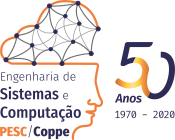Calendário de Eventos
|
December 20-22, 2018
Zhuhai, China
http://grid.hust.edu.cn/apscc2018//index.html
Call for papers
The services computing is a new cross-discipline that covers the science and technology needed to bridge the gap between business services and IT/telecommunication services. The goal of services computing is to develop new computing technology and thereby enable more advanced IT/telecommunication services to support business services more efficiently and effectively.
APSCC 2018 is an important forum for researchers and industry practitioners to exchange information regarding advancements in the state of art and practice of IT/telecommunication-driven business services and application services, as well as to identify emerging research topics and define the future directions of Services Computing.
Previous APSCC conferences were held in GuangZhou, China (2006), Tsukuba Science City, Japan (2007), Yilan, Taiwan China (2008), Biopolis, Singapore (2009), Hangzhou, China (2010), Jeju, Korea (2011), Guilin, China (2012), Fuzhou, China (2014), Bangkok, Thailand (2015), Zhangjiajie, China (2016) and Bali, Indonesia (2017). As the 12th event in the increasingly popular series, APSCC 2018 expects to attract outstanding researchers from all over the world to Zhuhai - one of the most beautiful cities in China.
Example topics of interest includes but is not limited to the following:
1. Cloud/Utility/Web Computing/BigData
a. Cloud computing
b. Resource acquisition models in cloud/utility computing
c. Security management, analysis for cloud/utility services
d. System performance evaluation, analysis and management
e. Utility business services
f. Utility computing
g. Web computing
h. Web service discovery and negotiation
i. Web service management and collaboration
j. Web service security and privacy
k. Big Data collection and pre-processing
l. Big Data storage and parallel computing
m. Big Data intelligent computing, mining methods and algorithms
2. Foundations of Services Computing
a. Formal methods for services computing
b. Service-oriented business consulting methodologies and utilities
c. Services composition
d. Services delivery
e. Services discovery
f. Services modeling
g. Services science
h. Services value chain and innovation lifecycle
3. Social/Peer-to-Peer/Mobile/Ubiquitous/Pervasive Computing
a. Online Social Networks
b. Peer-to-Peer Computing
c. Human interface for mobile/ubiquitous/pervasive environments
d. Mobile ad hoc networks
e. Mobile wireless Internet
f. Mobile CrowdSourcing
g. Mobile/ubiquitous security
h. Mobile/ubiquitous/pervasive quality of service (QoS) adaptation
i. Personal area networks, body wireless networks, Bluetooth
j. Software-defined radio, reconfigurable radio network
k. Wireless sensor networks
4. Service-centric Computing Models
a. Business strategy and design
b. Service-oriented architecture (SOA)
c. SOA industry solutions
d. SOA industry standards
e. SOA solution stack
f. Telecommunication Services
g. Fixed-mobile convergence
5. Integration of telecommunication SOA and Web services Service orchestration
a. Internet Protocol Television (IPTV)
b. Service-oriented Telco architectures and business processes
c. IP Multimedia Subsystem (IMS)
d. Next generation networks
e. Quality of service (QoS) and billing
6. Business Process Integration and Management Application integration services (e.g., Enterprise Service Bus)
a. Business performance management
b. E-business solutions
c. Enterprise modeling
d. Industry solution patterns
e. Linkage between IT services and business services
f. Mathematical foundation of business process modeling,integration and management
g. Security, privacy and trust in business process management
h. Service computing process modeling, transformation and integration
i. Service level automation and orchestration
j. Software architecture design, development and deployment (e.g., Software as a Service)
7. Security in Services
a. Cryptography for privacy-preserving in cloud computing
b. Privacy preserving cryptographic protocols
c. Privacy preserving cryptographic access control
d. Privacy preserving keyword search scheme
e. Privacy preserving data sharing methodology
f. Privacy preserving public auditing
g. Privacy preserving resource usage
h. Trusted execution environment
i. Trustworthy infrastructures and services for cloud computing
Paper Submission:
Manuscripts submitted will be REQUIRED to be formatted using the template provided by the LNCS instructions that can be found https://www.springer.com/cn/computer-science/lncs/conference-proceedings-guidelines. The submitted papers can only be in the format of PDF. Please use the following link for APSCC 2018 paper submission: https://ocs.springer.com/ocs/home/APSCC2018
Paper Publication:
All accepted and presented papers will be recommended and published after revision if any by the following SCI and EI journals:
l Sensors: Pervasive Intelligence and Computing
l Sensors: Multi-Sensor-Based Intelligent Systems for Physical Rehabilitatio
l Special Issue on Edge Computing for Internet of Things
l International Journal of Computational Science and Engineering, Inderscience
At least one author of each accepted paper is required to register and present their work at the conference; otherwise the paper will not be included in the proceedings.
Important Dates:
Abstract submission : Oct 31, 2018
Paper submission: Oct. 31, 2018
Notification of paper acceptance: Nov. 30, 2018
APSCC 2018 events: Dec. 20 - 22, 2018
Journal Submission: Dec. 29, 2018
Steering Committee Chair
Hai Jin, Huazhong University of Science and Technology, China
General Chair
Laurence T. Yang, St. Francis Xavier University, Canada
Hemant Jain, The University of Tennessee at Chattanooga, America
Program Committee Chair
Chen Yu, Huazhong University of Science and Technology, China
Beniamino Di Martino, Universita' della Campania "Luigi Vanvitelli", Italy
Publicity Chair
Wenbin Jiang, Huazhong University of Science and Technology, China







